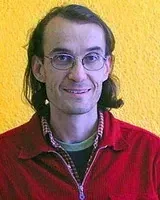NZ Composer to partner with Homai Campus
Written by

Meeting the challenges that blind and visually impaired singers face will be a new experience for composer Ross Carey as he undertakes a commission to write a work for the Homai School's National Music Course Choir.
Auckland - based Homai Campus, the national school for blind and low-vision students, and the Wellington-based Ross Carey are the sixth annual pairing in the SOUNZ Community Commission project. Meeting the challenges that blind and visually impaired singers face will be a new experience for composer Ross Carey as he undertakes a commission to write a work for the Homai School's National Music Course Choir.
Auckland - based Homai Campus, the national school for blind and low-vision students, and the Wellington-based Ross Carey are the sixth annual pairing in the SOUNZ Community Commission project.The project, administered by SOUNZ, the Centre for New Zealand Music, encourages community groups to work on a specific musical project with a professional composer.
"Each year in July we hold a National Music Course," Wendy Richards, Homai Campus Braille Music specialist explains. "Students and staff come in from all over New Zealand for the week and focus on Braille music reading, choir and band. At the end of the week we have a public concert. Our choir will have up to 30 members, with ages ranging from 11 years to adult.
"Most of the students have perfect pitch, making that aspect of singing relatively easy - but there are other challenges. The singers read music from Braille scores and there are many unknown and unusual issues that need to be considered: body language and movement for example. Ross has agreed to work with our choir on a vocal composition that will reflect the diversity of New Zealand from a student's perspective. This could include diversity of strengths, backgrounds and expectations. He will spend time with some of the students in a workshop setting allowing for their input and ideas to influence the composition."
Ross Carey is both a composer and pianist. He was educated in Wellington and has studied and worked widely overseas, particularly in Japan and Indonesia, which has brought a Pacific-Asian influence to many of his compositions.
"I'm really looking forward to the collaborative challenge," he says. "I will meet with the students in October and workshop ideas then, allowing the results to give a direction to the compositional possibilities: the text, accompanying instruments and so on."
The SOUNZ Community Commission is made possible through the generosity of an overseas donor who prefers to remain anonymous. "It is always exciting to see the range of creative collaborations represented in the proposals each year," Scilla Askew, executive director of SOUNZ comments. "The SOUNZ Community Commission is all about bringing professional composers and community musicians together. Not only do both these parties benefit in the process, but also, when the result is performed, the audience get to share in the energy and vitality that is engendered in the commissioning of new music."